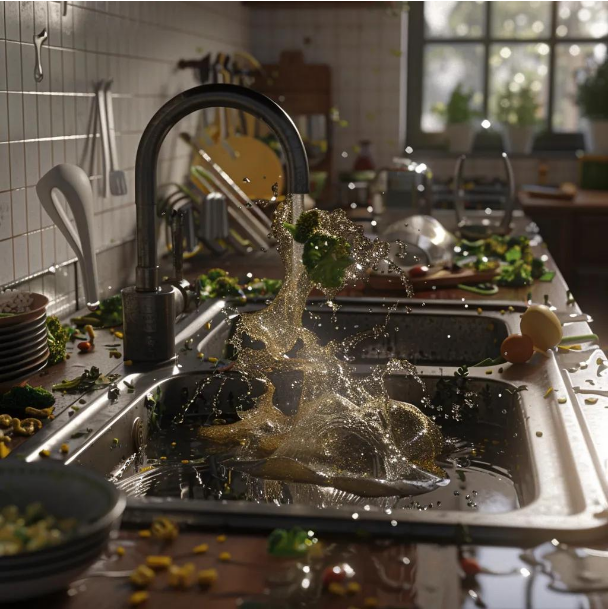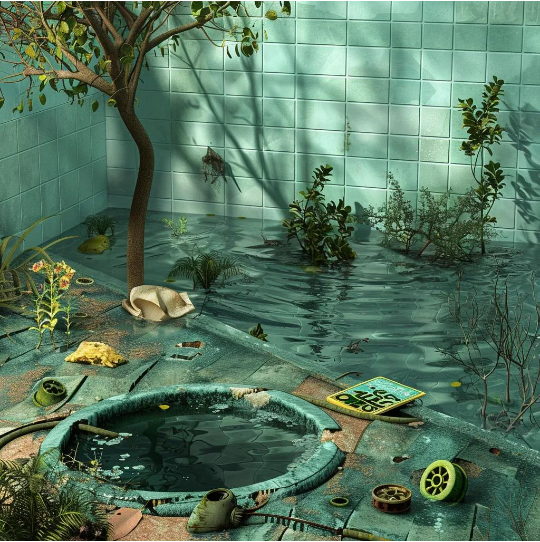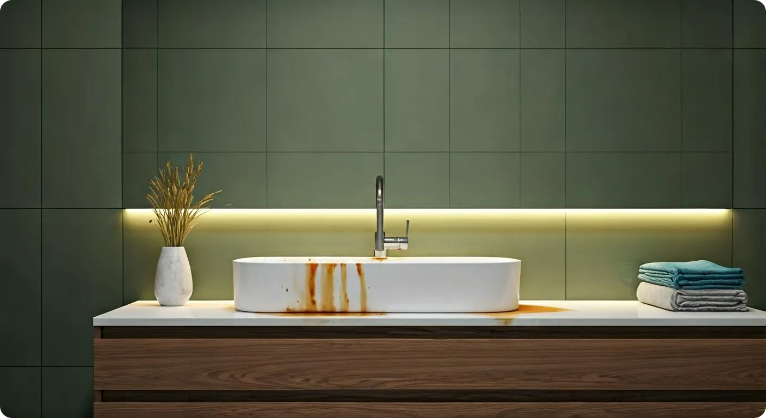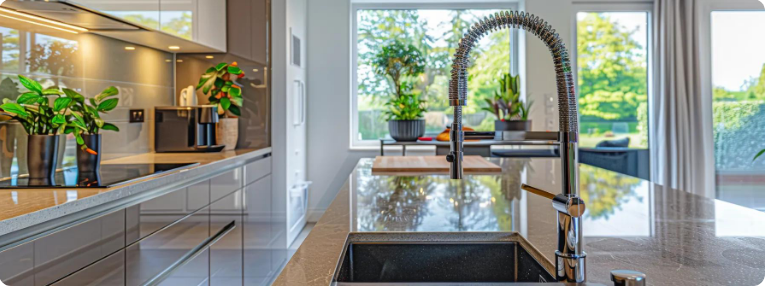Blogs

Where Do Most Clogs Occur In House Drains?
Ever wonder why your kitchen sink seems to clog at the worst possible moment, or why your shower drain turns into a mini swimming pool every time you wash your hair? You're not alone in this frustrating battle against blocked drains. The truth is, clogs don't just randomly appear throughout your home.

Harmful Effects Of Blocked Drainage
That slow-draining sink might seem like a minor annoyance, but it's actually the first domino in a chain reaction that could seriously harm your family's health and destroy your home. Most people think blocked drains are just inconvenient, but the reality is far more frightening. Behind that innocent puddle of standing water, dangerous bacteria like E. coli and Salmonella are multiplying, ready to cause waterborne diseases that can lead to severe illness.

What Are the Most Common Signs of a Blocked Drain?
Your drain is trying to tell you something, but are you listening? Those seemingly minor annoyances like water taking forever to disappear down your kitchen sink or strange gurgling noises coming from your shower might feel like no big deal right now, but they're actually your plumbing system's way of crying for help.

Best Tips to Prevent Blocked Drains
Nobody wants to deal with the frustration of blocked drains, especially when they could have been prevented with the right knowledge and habits. The truth is, most drain blockages don't happen overnight but develop gradually from everyday activities that seem harmless at the time.

Common Causes of Blocked Drains and Effective Tips to Prevent Them
Tired of dealing with slow drains and mysterious blockages that keep coming back? Understanding what actually causes these problems is the first step to preventing them. Most blocked drains aren't random occurrences but result from everyday habits that gradually build up trouble over time. From grease and food waste that solidify in kitchen pipes to hair and soap scum creating stubborn bathroom clogs, each type of blockage has specific causes and solutions.

How to Clear Blocked Drains: Effective DIY Methods and Prevention Tips
Dealing with slow drains or that awful smell coming from your sink? You're not alone. Blocked drains are one of the most frustrating home problems, but the good news is that many clogs can be cleared without calling a plumber. This comprehensive guide walks you through proven DIY methods that actually work, from the simple plunger technique to using drain snakes for deeper blockages. You'll discover how everyday household items like baking soda and vinegar can tackle stubborn clogs naturally, plus learn which commercial drain cleaners are worth your money and which ones to avoid.

What Is a Hot Water Heater Expansion Tank and Why Is It Important?
Ever heard those mysterious banging noises from your hot water system or found unexpected leaks around your heater? You might be dealing with pressure problems that an expansion tank could solve. Most Brisbane homeowners don't realize that when water heats up, it expands and needs somewhere to go. Without an expansion tank, this extra pressure can damage pipes, stress your water heater, and lead to expensive repairs.

What are the Hot water heater components?
Understanding your hot water heater's components is crucial for maintaining efficient operation and preventing costly repairs. This comprehensive guide breaks down each essential part, from the thermostat that regulates temperature to the anode rod that prevents corrosion and explaining their functions and maintenance requirements. Learn how heating elements, the water tank, dip tube, and critical safety features like the T&P valve work together to provide reliable hot water for your Brisbane home. With proper maintenance schedules and professional insights, you can extend your water heater's lifespan while ensuring safe, consistent performance.

Hot Water System Warranties by Brands
Hot water system warranties protect Brisbane homeowners against manufacturing defects and component failures, with coverage periods varying significantly between brands. Bosch offers the most advantageous warranty terms with up to 15 years coverage on heat exchangers for continuous flow systems. Rheem provides comprehensive warranties up to 12 years on inner tanks across their product range, while Rinnai backs their gas continuous flow systems with 12-year heat exchanger coverage. Dux offers solid protection with 10-year warranties on electric tank cylinders, and Thermann provides competitive coverage with 8-year tank warranties. The best warranties cover expensive components like heat exchangers and tank cylinders for extended periods while including both parts and labour costs.

Hot Water Heater vs Boiler
Hot water heaters and boilers serve different purposes for Brisbane homes. Hot water heaters focus solely on heating water for domestic use, costing $800-$2,500 to install, while boilers provide both hot water and space heating, with installation costs ranging $5,000-$15,000. Hot water heaters are ideal for Brisbane's subtropical climate since they only provide hot water without unused space heating capacity.

What to Know About Hot Water Heater Maintenance
Hot water heater maintenance is the regular inspection, cleaning, and servicing of your hot water system to ensure safe and efficient operation. Proper maintenance extends system lifespan by 3-5 years, improves energy efficiency by 10-20%, and prevents 70% of emergency breakdowns. The maintenance process includes visual inspection, sediment flushing, heating element cleaning, thermostat calibration, and safety checks.

Heat Pump System Not Working: Reasons and How to Fix It
A heat pump system is an energy-efficient heating and cooling device that can stop working due to various issues including electrical problems, mechanical breakdowns, and maintenance neglect. Common signs your heat pump is failing include unusual noises, insufficient heating or cooling, ice formation, strange odors, and increased electricity bills.

